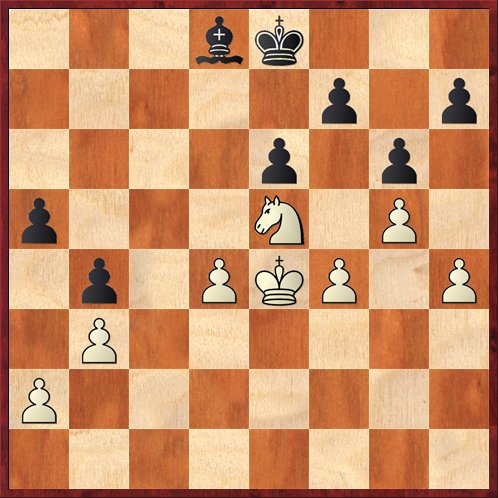They just keep on coming! Young chess talents in the San Francisco Bay area, that is. Now Samuel Sevian has become the youngest national master in U.S. history, beating by 11 days the record set by Nicholas Nip (also from the SF Bay area).
When Nip set the record a few years ago it was accompanied by controversy, as a recent comment on this blog mentioned. Perhaps the most telling fact is that Nip has apparently dropped chess cold turkey since he got to 2200. He has played only one tournament, and five rated games, since then. It looks an awful lot as if his interest was just in setting the record, not becoming a good lifelong chess player.
I don’t think that Sevian will pull a Nip-style disappearing act. In fact, the day after he earned the national master title, he played in another tournament. (His rating dropped from 2201 to 2191 — thus making him perhaps the shortest-duration master in USCF history as well as the youngest! But I assume this will be only a temporary setback.)
What I do worry about in Sevian’s case is burnout. He has played a phenomenal number of games for someone who isn’t even 10 years old yet. Look at his player info page at uschess.org: he played 130 games in 2008 (at age seven), 126 in 2009 (at age eight) and 128 this year (at age nine). Can he really keep up such a brutal pace? And can he really learn from all those games? I think there is such a thing as playing too much — it’s why I’m taking a four-month (or more) holiday from chess. And Sevian’s rating does not appear to be on a trajectory of meteoric improvement. At the end of last year he was 2123, and for most of this year he was just going horizontally, until two big successes in November and December put him over 2200.
So I think the jury is still out on Sevian, whether he is going to turn into another star like Shankland, Naroditsky, and Zierk, or whether he is going to struggle to get past this point. But for now, there’s no arguing the fact that he’s done something that nobody ever has before.
By the way, I have played one game against Sevian, in February this year, but it was hard for me to reach any conclusions from it. He played the Slav Defense against me, which I consider an old-man opening that should not be in a 9-year-old’s repertoire. It was quite possibly my most boring game of the year, and that was mostly my fault. I decided to play positionally (often a sound strategy against wunderkinds), got a microscopic advantage and just traded down into an endgame where I still had a microscopic advantage. But it never really amounted to anything. This position was my last chance to try for something more:
Does White have any winning chances?
Here the move I really wanted to play was 42. d5, but I didn’t see any way of winning after 42. … ed+ 43. Kxd5 f6! This timely pawn break lets Black activate his bishop, and if I really press for a win with 44. Nc6 Bc7 I could get myself into a lot of trouble. White’s kingside pawns will fall and even if White’s queenside pawns are a tempo or so ahead of Black’s kingside pawns, Black’s bishop is a much better defender than White’s knight. I just couldn’t persuade myself that it was worth the risk, and I just repeated the position three times with 42. Ng4 Kd7 43. Ne5+ Ke8 44. Nc4 Bc7 45. Ne5 Bd8, draw.
I asked Samuel after the game what he would have played on 42. d5. He immediately said 42. … ed+ 43. Kxd5 f6. So at least I know that he understood the endgame.
By the way, Rybka also says the endgame is dead even. Besides the above line, it also gives 42. … f5+ as equal, which is a little trickier but I suppose it works.




{ 2 comments… read them below or add one }
2 more years of observations since this post. He is a World Champion but perhaps not playing as many games. What do you think is the optimal number of games to prevent burnout? As a parent I find it hard to draw the line. I think Botvinik suggestion of no more than 60 games a year may not be applicable to 7 year olds. But having just returned from the K-12 Championships in Orlando, I am not convinced that the elite chess kids are not in danger of getting burned-out.
Samuel Sevian is definitely doing better than I expected two years ago, and apparently has not burned out yet. However, it is worth pointing out that his workload (playload?) has decreased a little bit. His busiest year, in terms of the number of games, was the year that he spent in the 2100-2200 rating doldrums. Since then he has been playing less and improving faster. Perhaps an argument for “less is more.”